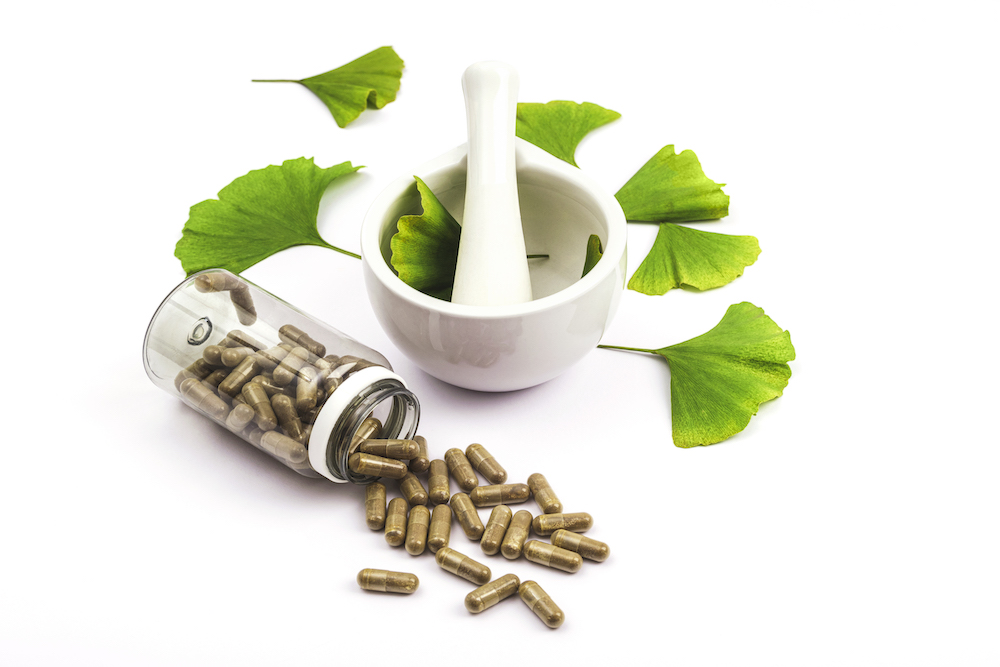Research Offers Insight into Product and Reference Quality
Used in traditional Chinese medicine to treat mental health conditions, Alzheimer’s disease, and fatigue, ginkgo biloba has surged in popularity in recent years. Ginkgo biloba extract (GbE) is a dietary supplement derived from Ginkgo biloba leaves and is used to make finished products that are sold as dietary supplements. Because botanical dietary supplements are complex mixtures of variable composition, a key challenge identified in the Division of Translational Toxicology (DTT) botanical research program is comparing toxicological evaluation and assessments of potential risk across these mixtures and in comparison to the reference material used in DTT studies. It was also unclear how widely data generated in toxicity and carcinogenicity studies involving an unfinished GbE product that DTT uses as reference material could be extrapolated to other GbE products. As a result, the application of these results to the broader GbE supplement market has been unclear.
What We Did
To address these challenges, we used a variety of analytical and chemometric techniques to evaluate similarities and differences between 20 commercially available unfinished GbE products and extracts on the market, and the DTT unfinished GbE reference material. These included Ginkgo biloba powder extract, Ginkgo dry extract, Ginkgo biloba extract USP, Ginkgo extract, Ginkgo biloba leaf powder, and a known adulterant of GbE Sophora japonica. We also evaluated four finished products obtained from the over-the-counter marketplace.
What We Found
The results for each sample from each method were then compared with each other to assess similarities and differences between these products and to assess their similarity to the DTT reference material.
First and likely most important to general consumers, this survey found that the majority of unfinished GbE samples were not characteristic of high-quality GbE, indicating a problem in the supply chain. We were able to clearly distinguish between unfinished product samples that were high-quality and those that were not based on the presence or absence of known authentic GbE standards and known GbE adulterants. The samples determined to be uncharacteristic of GbE appeared to be composed of small amounts of GbE mixed with a combination of individual constituents and other plant species.
Second, these findings support the use of the DTT reference material as a high-quality GbE sample representative of other characteristic GbE samples. On the other hand, the results also indicate that the data generated likely should not be applied to uncharacteristic unfinished GbE samples.
What We Learned
Ginkgo biloba provided an excellent test case for botanical comparisons because there are numerous compounds in the extracts unique to this species, standard reference materials, and high-quality finished products available for comparison. Our work shows general agreement on characteristic and uncharacteristic GbE sample classification of finished and unfinished products between all of the methods used. Therefore, a simple check for the presence, absence, or amount of these unique compounds in GbE samples could be sufficient to determine authenticity.
GETTING STARTED AT MRIGLOBAL
Contact MRIGlobal to further understand our experience and in-depth knowledge of toxicology services. Our team of toxicology experts provide analytical chemistry services to advance the mission of promoting human health through science-based evaluation of toxicological information.
To learn more about the work we’ve done or how we can help you, contact us today. If you are part of an agency, business, or academic institution seeking assistance with a project, use our Project Quote Tool to get started.
SIGN UP FOR OUR NEWSLETTER
Sign up for the MRIGlobal newsletter! It’s the best way to get the latest updates in the world of applied scientific engineering research delivered directly to your inbox.

